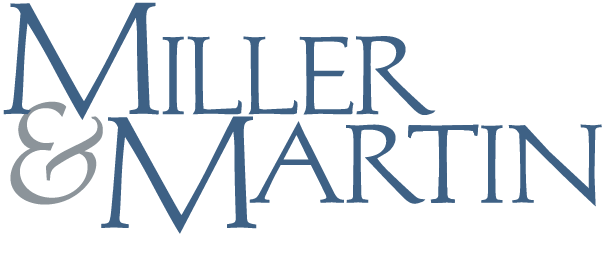Employee Benefits During the COVID-19 Pandemic
Miller & Martin PLLC Alerts | March 23, 2020
Author: Christopher Crevasse
Updated on March 30, 2020 to include additional summaries of the employee benefits provisions in the Families First Coronavirus Response Act and the CARES Act.
The COVID-19 pandemic is resulting in significant economic disruptions for employers and employees, including lost revenue and employee furloughs and terminations. These disruptions will present challenges with respect to employee benefit plans such as 401(k) plans, health plans, and other benefit plans and programs. This Alert discusses some of the employee benefits issues facing employers and employees, and summarizes the assistance offered by the Families First Coronavirus Response Act (FFCRA) and the Coronavirus Aid, Relief, and Economic Security Act (CARES Act).
CARES Act Provisions Related To Retirement Plans
Many 401(k) plans allow participants to take loans from the plan. Normally, these loans are limited to the lesser of $50,000 or 50% of a participant’s vested account balance. Furloughs and employment terminations often trigger acceleration of the loan payments as well as loan defaults and participant penalties. The CARES Act, signed into law on March 27, provides that the maximum amount that may be taken as a plan loan by a “qualified individual” is increased to the lesser of $100,000 or 100% of a participant’s vested account balance, beginning on the effective date of the Act and ending 180 days later. In addition, the CARES Act provides payment relief for outstanding loans: current plan loans that call for payments to be made on or after the CARES Act enactment date through December 31, 2020, may be delayed for one year without penalty. Interest continues to accrue during this period and repayment rates can be adjusted to reflect the later due date.
401(k) plans can also allow in-service distributions – distributions from the plan prior to the employee’s retirement or other termination of employment – such as hardship distributions or distributions available upon the attainment of a stated age. Under the CARES Act, participants who are “qualified individuals” may take up to $100,000 in “coronavirus-related distributions” from their retirement plan between January 1, 2020, and December 31, 2020. A “qualified individual” is a person who is diagnosed with COVID-19; whose spouse or a dependent is diagnosed with COVID-19; or who experiences adverse financial consequences because of coronavirus-related situations such as quarantine, termination, furlough, reduction in hours, staying home to care for children, or due to the closing or reduced hours of a business owned or operated by the individual. Plan administrators can rely on an employee’s certification that they meet one of these coronavirus-related situations to approve the distribution. These coronavirus-related distributions are exempt from the usual 10% early withdrawal penalty. Further, instead of being subject to income tax upon receipt, taxation of these distributions may be spread out in equal parts over three years beginning in 2020. Similarly, the distributions can be repaid over three years (in one or multiple installments) to any eligible retirement plan in which the participant is a beneficiary.
The CARES Act also provides that required minimum distributions from defined contribution plans (including 401(k) plans, 403(b) plans, governmental 457(b) plans, individual retirement annuities, and individual retirement accounts) due in 2020 are waived. This waiver does not apply to defined benefit plans.
Reducing Retirement Plan Contributions
Employers facing cash flow problems may wish to reduce or eliminate their contributions to a retirement plan. Employer contributions to defined contribution retirement plans (such as 401(k) plans) take one of two forms: matching contributions or nonelective contributions. If these contributions are discretionary, then the contributions can be reduced or eliminated relatively easily, as no plan amendment is required. If these contributions are mandatory – written into the plan document – then the plan will have to be amended to reduce or eliminate the contributions. Contributions that accrue prior to the effective date of the change or amendment still must be made to and retained in the plan.
401(k) plans that include a safe harbor match or safe harbor nonelective contribution face additional challenges, because safe harbor contributions can be changed mid-year only if the changes satisfy certain conditions. However, safe harbor contributions can be reduced or suspended for a plan year if the employer is operating at an economic loss as described in Internal Revenue Code Section 412(c)(2)(A). The plan must also satisfy applicable notice and election requirements.
Employment terminations may also trigger a “partial termination” of a retirement plan. A partial termination may occur when more than 20% of total plan participants are laid off in a particular year. If a plan includes a vesting schedule, all “affected employees” must be fully vested in their retirement plan accounts following a partial termination. Among other issues, this could create a problem with forfeitures that occurred earlier in the year.
Health Plans
The Families First Coronavirus Response Act (FFCRA), signed by President Trump on March 18, requires group health plans to provide coverage for FDA-approved COVID-19 diagnostic testing products and related items and services furnished during a provider visit. Further, this mandated coverage must be provided without cost-sharing (including deductibles, copayments, and coinsurance) beginning March 18 through the end of the public emergency period. The FFCRA also provides payroll tax credits to employers for expenses the employer pays or incurs to provide and maintain a group health plan for an employee on paid leave.
With respect to COVID-19 testing that is covered at no cost to participants, the CARES Act provides that group health plans must pay either the rate specified in a contract between the provider and the plan or, if there is no contract, a cash price published by the provider on a public internet site. A provider who does not publish a cash price for testing may be subject to a penalty of $300 for each day of noncompliance.
Regarding Health Savings Accounts (HSAs), the CARES Act states that a plan will not fail to be a high-deductible health plan even though the plan has no deductible for telehealth and other remote care services. This provision is effective for plan years beginning on or before December 31, 2021. In addition, the CARES Act repeals the rule enacted in the Affordable Care Act that prohibited over-the-counter medicines other than insulin from being “qualified medical expenses.” Thus, HSAs and flexible spending accounts may be used to cover over-the-counter medical products, including those needed in quarantine and social distancing, without a prescription. The provision also adds menstrual products to the definition of qualified medical expenses.
COBRA
The pandemic also presents unexpected COBRA issues regarding those employers who are reducing the hours worked by their remaining employees. These newly part-time employees may now be working fewer hours than required to remain eligible for the employer’s benefit plans, especially health plans. For those employers subject to COBRA, a reduction in hours of employment that leads to a loss of coverage under a health plan is a COBRA-qualifying event just as is a termination of employment. Thus, all current and former employees who have lost coverage under a health plan should be sent a COBRA election notice within the usual timeframe.
Employers may wish to find a way to insulate their employees from losing health coverage as the result of a reduction in hours of employment. If the health plan is self-insured, the employer can generally take steps to prevent the loss of coverage, such as by waiving eligibility requirements or amending the plan to suspend or change the eligibility requirements. The stop loss carrier should be consulted to determine whether the carrier will cover claims relating to participants who would otherwise be ineligible for coverage. Likewise with respect to insured health plans, any changes to or suspensions of eligibility requirements must be coordinated with the insurer.
We Can Help
Please contact a member of Miller & Martin's Employee Benefits practice to further discuss how to address the unique challenges and opportunities presented by COVID-19.
For more information about the ongoing developments related to the COVID-19 pandemic, please visit Miller & Martin's Coronavirus Resources.

